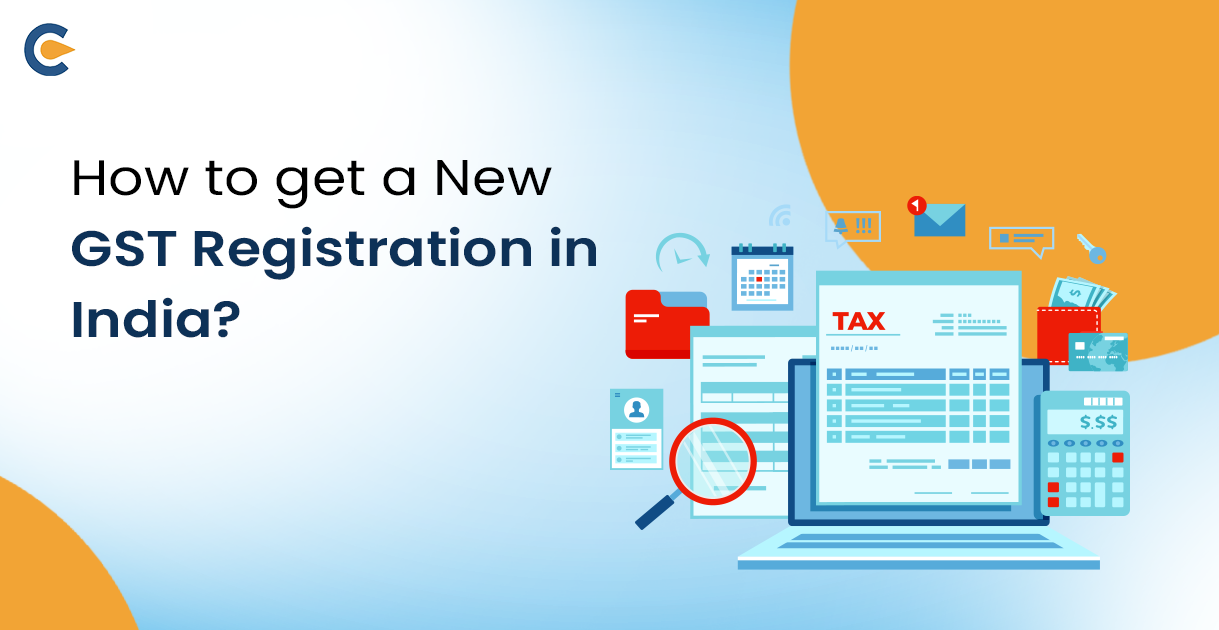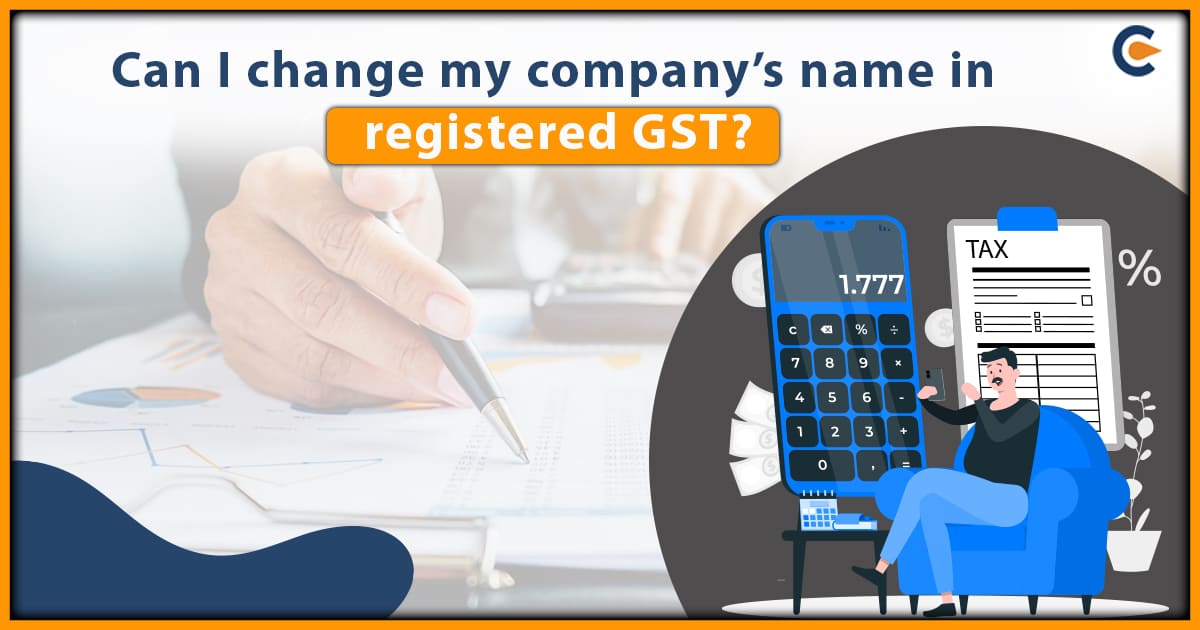India implemented a new tax system on July 1, 2017, known as the Goods and Services Tax. In India, the GST has supplanted several indirect taxes. The only indirect tax in the nation based on the consumption of goods and services is the Goods and Services Tax (GST). The Goods and Service Tax Council, which is made up of the finance ministers of the federal government and each state, sets the laws, rules, and tax rates. Rates for goods and services tax range from 0% to 28%, depending on the kind of goods and services your company sells. For the new GST registration method, one must adhere to the updated GST registration process in India. For GST services, one can get expert assistance.
What is a GSTIN and GST Portal?
Under the GST regime, registering a business online is a mandatory step for every taxpayer or business owner with an annual revenue of more than Rs. 20 lakhs. A unique number known as a GSTIN is only issued to the business owner following the completion of the online GST registration process. The GSTIN number is a crucial component of GST filing as it is required by the taxpayer at every stage of return filing, bill production, and invoice processing. One must visit the official GST registration website in India to complete all of these procedures.
Every person who has registered for GST is given a unique 15-digit PAN-based number called their GSTIN, or GST identity number. Consequently, in order to receive this number, GST registration is required. One individual may have more than one GSTIN. In this case, the applicant has to receive a GSTIN whenever they exceed a certain threshold for GST registration.
Eligibility for New GST Registration
- According to the Goods and Service Tax Act of 2017, any industry with a turnover of at least Rs. 40 lakh is required to register for GST.
- A GST registration application should be submitted by every industry that ships products across states.
- GST registration is required for casual/non-resident taxable individuals as well as for those who offer taxable products or services inside the nation’s taxable area.
- If the business’s yearly revenue exceeds Rs. 20 lakh and the products are sold inside the same state, then GST registration is required. The same applies to service providers with yearly revenues of Rs. 40 lakh or more in the same state. Additionally, sellers in the same state are required to register for GST.
52nd GST Council Meeting: Essential Points
- The GST Amnesty Scheme will prolong the deadline for submitting an appeal until January 31, 2024, in contrast to the three-month term stipulated by law for all orders issued until March 2023. The pre-deposit of tax, which is 12.5 per cent, is paid in cash.
- There will be amendments in rule 159(2) of the CGST rules. After a year, the temporarily connected property will automatically be restored.
- Additionally, it is made clear that no GST will be applied to the directors’ personal guarantees given to the bank in relation to any loans or credit limits approved for the business.
- The power to impose taxes on Extra Neutral Alcohol (ENA) used in alcoholic drinks intended for human use has been granted to states by the GST Council.
- One per cent of the guaranteed amount given or the actual remuneration is the taxable value of a business guarantee issued between related parties (a holding company and its subsidiary).
Types of registration for new GST registration
There are various types of registration for new GST registration. They are:
Regular GST Registration:
Companies with annual turnover over a certain amount must register for regular GST. They have to periodically file GST returns and follow all applicable GST laws and regulations.
Registration under the Composition Scheme:
Small businesses may register under the composition scheme if their annual revenue is less than a specific threshold. They pay a fixed percentage of turnover in taxes and have fewer compliance requirements than with regular registration.
Casual Registration:
This is a choice for companies that operate seasonally or just seldom in a state other than their home base. This allows them to adhere to the GST laws for those specific transactions.
Non-Resident Registration:
Businesses that supply products or services outside of India must register under this heading. It helps them fulfil their tax obligations and comply with GST regulations.
SEZ Registration:
Businesses that operate in Special Economic Zones (SEZs) must follow a specific registration process. They are eligible for certain tax reductions and exemptions, but in order to benefit from them, each one must register under the GST regime separately.
Benefits of New GST Registration
Following are some of the major benefits of new GST registration in India:
- The online GST registration reduced regulatory complexity by replacing a number of indirect taxes. It simplified and made the compliance process easy to understand.
- The ability to claim Input Tax Credit, or the taxes paid on products or services purchased for the firm itself, is one of the main benefits of new GST registration.
- New GST registration can enhance cash flow and lessen the overall tax burden.
- Businesses can benefit from a number of government programs, including the GST Compliance Scheme, incentives, and tax breaks, by registering in GST, which will eventually promote company growth.
- The GST system is digitally administered, so there is less paperwork and a chance of human mistakes. Additionally, this increases taxpayers’ transparency in the process.
- The onerous procedure of having products pass through several state checkpoints for tax inspection is removed with new GST registration, saving money and time on transportation.
- Online GST registration has aided in the formalization of the economy, which has boosted tax revenue, developed infrastructure, and stimulated economic expansion in general.
New GST Registration: Common Challenges and Solutions
There are various challenges that can be faced by an individual or an entity while a new GST registration procedure is going on. It is important to consult an expert for the same. Below are some of the common challenges faced during the new GST registration process:
- There can be challenges related to the digital signature.
- Due to incorrect information in the GST application, many errors can arise.
- When the application for new GST registration is not filed as per the rules mentioned.
- Incorrect information was in the GST certificate after it was issued.
- Issues related to range code can also be faced.
- There can be challenges due to changes made in the GST rules and regulations.
- Some technical glitches can also lead to many challenges at the time of the new GST registration process.
- Issues related to ITC can also result in a hassle for taxpayers.
What does the New GST Registration Certificate contain?
The Goods and Services Tax Identification Number (GSTIN) is the name given to this number. Additional information on the registered taxpayer, including name, address, and taxpayer type (manufacturer, service provider, etc.), is also included in the certificate. It also contains information on the taxpayer’s taxes paid, the date of registration, and the certificate’s expiration date.
The GST certificate must be renewed annually after it expires on the date of issuance. The taxpayer’s information, including turnover, employee count, and business type, must be submitted as part of the renewal procedure. The specifics of the taxes paid for the prior year must also be submitted by the taxpayer.
New GST Registration with Corpbiz
All goods and services providers have to register for GST in India. Non-compliance with GST rules and regulations can result in penalties and fines. With our GST experts at Corpbiz, your new GST registration process can be seamless. Our GST experts have expertise in handling all pre and post-new GST registration compliances, which will enhance your business.
Frequently Asked Questions
What is a GST certificate?
A document provided by the Indian government attesting to a business's registration with the Goods and Services Tax (GST) system is known as a GST certificate. It is a special identifying number that is used in India for tax purposes to identify a firm.
Who requires a GST Certificate?
A GST certificate is required for any company that has registered for GST with the Indian government. This holds true for companies operating online and offline.
What advantages come with new GST registration?
Input tax credits, legal recognition, customer GST collection, and tax law compliance are among the advantages.
Can my new GST registration be cancelled?
If your company is no longer eligible to register under GST, you may, in fact, terminate your GST registration on your own or the authorities can initiate the same.
Is registration for GST valid throughout India?
Yes, a GST registration is good for the whole nation.
Does each place of business require its own GST registration?
Yes, a separate GST registration may be needed for each place of operation.
Is a GST certificate essential?
Yes, in order for a firm to register for GST in India, they need to get a GST certificate. Businesses will not be allowed to charge GST on the goods and services they offer if they do not have a GST certificate.
What are the four types of GST which can be registered?
The 4 types of GST are CGST, IGST, UTGST and SGST in India.
Who is liable to pay GST in India after the new GST registration is done?
The GST is to be paid by the seller after the new GST registration has been done.
What is RCM in Goods and Service tax?
RCM is reverse charge mechanism. In this mechanism, the recipient is liable to pay the required GST, not the seller.
Read Our Article: Guide On The Types Of GST Registration











